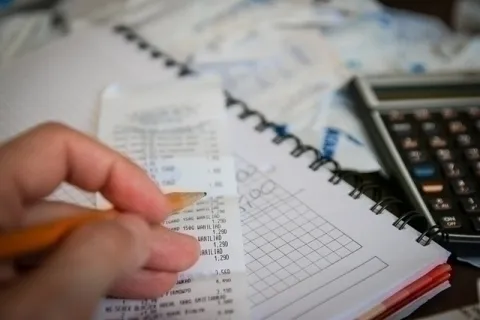How beneficial have trading simulation tools been in your learning process?
» Education and Resources- Trading simulation tools allowed me to practice strategies without financial risk, boosting my confidence.
- They provided real-time market conditions that honed my decision-making skills.
- The immediate feedback on trades helped me understand the consequences of my actions and improve my approach.
I've been wondering about the usefulness of trading simulation tools in people's learning process. Have any of you tried using them? If so, I'd love to hear your thoughts on how beneficial they have been. Did they provide a realistic experience and help you understand the ins and outs of trading? Or did you find them lacking in any way? Any input is appreciated!
I find trading simulation tools to be incredibly useful in the learning process. As someone who has dabbled in trading, I've had the opportunity to try out a few different simulation tools, and they've definitely enhanced my understanding of the ins and outs of trading.
One of the main benefits of these tools is that they provide a realistic experience without the risk of losing actual money. This is particularly helpful for beginners who are still learning the ropes and don't want to risk their hard-earned cash right away. I remember when I first started trading, I made quite a few mistakes that would have cost me a significant amount of money if I had been trading with real funds. The simulation tools allowed me to learn from these mistakes and understand the consequences of different trading decisions.
Moreover, these tools also provide a great way to practice various strategies and techniques. For example, if you wanted to try out day trading or swing trading, you can simulate those scenarios and see how your decisions would have played out in real-time. This hands-on experience is invaluable in developing trading skills and gaining confidence in your abilities.
However, it's also important to note that simulation tools do have their limitations. While they can provide a realistic experience to some extent, they may not capture the full emotional aspect of trading. The fear and greed that often come into play when real money is at stake can significantly impact decision-making. Thus, it's crucial to keep in mind that the psychological element of trading may not be fully replicated in a simulation.
Additionally, it's worth mentioning that different simulation tools vary in terms of their complexity and features. Some may offer more advanced functionalities such as real-time market data and the ability to trade with multiple assets and financial instruments. These tools can be particularly useful for those who want to dive deeper into trading and explore more complex trading strategies.
In conclusion, trading simulation tools have been highly beneficial in my learning process. They have provided a realistic experience, allowing me to understand the nuances of trading without risking real money. However, it's important to recognize their limitations and supplement simulation tools with real-world trading experiences to fully grasp the complexities and emotional aspects of the markets.
I couldn't agree more with BrainyBookworm852 about the usefulness of trading simulation tools in the learning process. I've also found them to be incredibly beneficial in my journey as a trader.
Like BrainyBookworm852 mentioned, one of the main advantages of these tools is that they provide a realistic experience without the risk of losing actual money. This is especially helpful for beginners like myself who are still getting the hang of things and don't want to risk their hard-earned cash right off the bat. I remember when I first started trading, I made a few costly mistakes that would have had a significant impact on my finances if I had been using real funds. The simulation tools allowed me to learn from these mistakes and understand the consequences of different trading decisions, which ultimately helped me improve my trading skills.
Another aspect that I find particularly beneficial is that trading simulation tools offer a great opportunity to practice various strategies and techniques. Whether you're interested in day trading, swing trading, or any other trading style, you can simulate those scenarios and see how your decisions would have played out in real-time. This hands-on experience allows you to fine-tune your strategies and gain confidence in your abilities. I can't stress enough how valuable this aspect has been for me in honing my trading skills.
However, it's important to acknowledge that simulation tools do have their limitations. As BrainyBookworm852 mentioned, they might not fully capture the emotional aspect of trading. The fear and greed that often come into play when real money is at stake can greatly impact decision-making. It's crucial to keep in mind that the psychological element of trading may not be fully replicated in a simulation. That's why it's essential to supplement simulation tools with real-world trading experiences to fully grasp the complexities and emotional aspects of the markets.
Furthermore, it's worth noting that different simulation tools vary in complexity and features. Some tools offer more advanced functionalities such as real-time market data and the ability to trade with multiple assets and financial instruments. These tools can be incredibly useful for those who want to dive deeper into trading and explore more complex trading strategies. It's all about finding the simulation tool that suits your needs and trading goals.
In conclusion, trading simulation tools have been a game-changer for me in my trading journey. They have provided a realistic experience, allowing me to understand the intricacies of trading without risking real money. However, it's vital to remember their limitations and supplement them with real-world trading experiences to fully grasp the psychological aspects of trading. If used correctly and in conjunction with actual trading, these tools can be a valuable asset in enhancing one's trading skills and knowledge.
I totally appreciate this conversation about trading simulation tools, it's really making me think. Now, playing the devil’s advocate here, no doubt these tools can be handy, but I reckon we shouldn't overlook their potential shortcomings as well. Not intending to sound negative, just aiming for a balanced discussion, folks.
So while it's a cool, risk-free way to cut your teeth on trading maneuvers, there are a couple of things that irk me. For one, the emotional quotient. Let’s face it – trading with play money isn't going to give you that same buzz or gut-twisting stress you'd experience when it's your actual, hard-earned dough. It's one thing to test strategies without fear of losses, but the downside is that you may get conditioned to take risks you wouldn't in the real world.
Moreover, trading simulations might not fully represent the real trading environment. Some of these platforms may not fit in aspects like trading costs, dividends, or even the time delay that you'd experience in real-life trading. So, you might be smashing it on a simulator but struggle to replicate the same performance in the wild, so to speak.
Last, although you have a chance to test various technical analysis tools in a simulator, some of them might not be available in the real trading platform you end up choosing. This could lead to a need to modify the strategy you perfected in the simulator, which can be quite challenging.
Don't get me wrong though. Not saying simulators are a no-go. They’re valuable for learning the ropes, grasping market mechanics, and backtesting strategies. But it's worth being aware of these aspects to avoid false confidence and be better prepared for when you switch to trading in the real world. After all, it’s a different beast altogether.
Would love to hear people's thoughts on this. Any of you ever felt that transition from trading simulation to real-world trading was a steeper curve than you'd anticipated?
Totally hear you on that. Just wanted to throw in that trading simulations could even lead novices into developing some bad habits. Started worrying about it after switching from virtual to real dollars. Anyone else experienced that?
Reading through all the comments, I see that we've already established the many benefits of trading simulations and a few potential drawbacks. Given this, I'd love to take a bit of a different angle and touch on an aspect that hasn't been discussed yet: The impact of trading simulations on our mindset and behaviour.
Anyone else noticed how using pretend money in simulations can potentially lead to a very different approach to trading decisions? I mean, when the fear of losing real money is absent, we might end up taking for granted the importance of a cautious, well-thought-out approach. In turn, this may lead to the development of habits that might not serve us well once we make the leap to real-world trading.
It's really crucial to be very disciplined when using these simulations, consciously reminding ourselves of the real-world implications of each decision. The absence of real loss can sometimes make it easy to shrug off bad trades, but in the wild, well... each mistake can cost actual dollars, sometimes lots of them!
So while these tools are indeed invaluable for gaining a nuanced understanding of trading, let's keep in mind the need for a careful, attentive approach even when we're just practicing. It's easier to translate success from a trading simulation to real-world trading when we stick to the same principles and strategies throughout, without any 'let's just wing it' experiments.
What do you guys think? How can one make the most out of trading simulations while keeping it as close to the real thing as possible? And any tips for avoiding the pitfalls I've mentioned? Looking forward to your insights!
After reading everyone's comments, I'm left feeling curious: Do any of you feel trading simulations might lead to a sort of 'gaming' mindset rather than a serious trading one? Could this ultimately lead to skewed expectations or do you think it helps make learning about trading more engaging? Would love to hear your thoughts.
That's an interesting point, drtrader101. It got me thinking about how we develop our risk assessment skills. Trading simulations, while lacking the emotional aspect, could help us better analyze risk without the fear of loss playing into our decisions. This might allow us to think objectively and not let fear rule our choices. Then again, becoming overly cavalier because there's nothing at stake can lead to reckless decisions down the line. Striking a balance is key, perhaps? Thoughts?
Absolutely, finding that middle ground seems like the way to go. Maybe simulation pros have insights on flipping the switch between a 'practice' and 'real deal' mentality? Curious how they keep it real.
Keeping it real indeed hinges on discipline, but it might also be worthwhile to set specific goals and limits within the simulator to mimic real trading constraints. Does anyone integrate such boundaries to maintain a level of authenticity in their practice sessions?
Has anyone tested varied market scenarios in simulators to gauge their strategy efficiency under different economic conditions?
- What is a securities' yield and how can it be analyzed? 5
- How do I use price charts for market analysis? 3
- Can anyone explain the principle of contrarian investing? 4
- Can you explain the concept of scalping in trading? 3
- How can I calculate the risk-reward ratio in my trades? 2
- Can you explain the concept of supply and demand analysis? 12
- How do you cope with a series of unsuccessful trades? 10
- How can I manage risk in my trading? 3
- Can you explain the concept of a trading plan? 3
- How can changes in a company's market share influence its stock price? 1
- How do you navigate the regulations surrounding short selling? 317
- What are Forex trading and its basics? 289
- How do you manage stress during volatile market conditions? 216
- How does a stop-loss order work in trading? 205
- What tax implications should I consider when trading? 199
- What are the best platforms for online trading? 191
- What's the difference between day trading and long-term investing? 188
- What is swing trading and how is it different from day trading? 185
- How do you avoid letting past trading successes or failures impact your future decisions? 180
- Can you explain the concept of short selling in trading? 178

We have compared the best crypto exchanges for you. Just take a look at our free crypto exchange provider comparison.

We have compared the leading crypto tax tool providers for you. Check out our free crypto tax tool provider comparison.
Blog Posts | Current

Automating Your Trades: The Power of Trading Algorithms
As an avid trader, you've probably heard the buzz around trading algorithms. But what are they, and how can they...

Protect Your Capital with Effective Risk Management in Trading
Risk Management As a beginner trader, you're likely eager to dive into the markets and start making some profits. However, before...

Different Cost Average Trading Strategies
Cost Average Trading is one of the most popular trading strategies used by investors to minimize their risk and maximize...

Breaking Down the Buzzword: What is a Trading Bloc?
Are you familiar with the term "trading bloc"? It may sound complicated, but it's actually a concept that can have...

From Chaos to Consistency: Why a Trading Setup is Key to Success
Trading is an exciting and rewarding way to make money, but it can also be overwhelming for beginners. One of...

Maximizing Returns: The Importance of Rebalancing Your Portfolio
Rebalancing your portfolio is an important part of any long-term investment strategy. It involves periodically adjusting your portfolio's asset allocation...

Don't Fall for the Hype: The Risks of Using Trading Bots
As a beginner trader, you may have come across the idea of using trading bots to automate your trading and...

Mastering Your Mindset: The Key to Successful Trading Psychology
As a trader, your success in the markets depends not only on your technical skills and market knowledge, but also...

The 5 most common mistakes made by crypto traders
The 5 most common mistakes made by crypto traders Crypto trading is becoming increasingly popular, but there is great potential to...

The Trader's Dilemma: Dealing with Losses in Trading
As a trader, losses are an inevitable part of the game. Even the most successful traders will experience losing trades...
